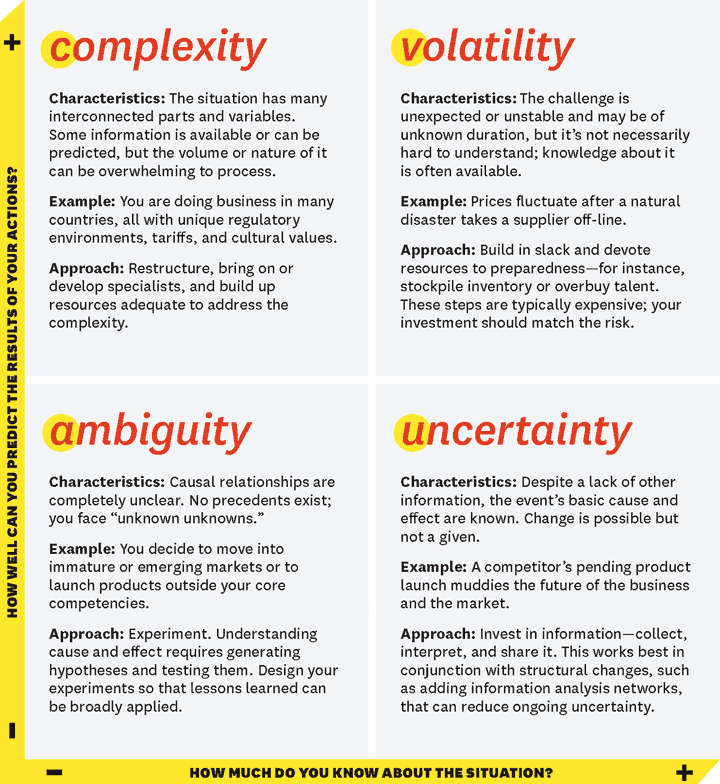Organisational _______________ (Blank) is where my think is at. Very much around the Complexity Theory and building and harnessing trust within it. Whether Coaching, culture, leading, developing leadership, communication,
personal effectiveness, change management, systems, diversity or self-evaluation, the prominence of each component fluctuates. For the past month it has been almost all been about Coaching, prior to that it was change management and leading change, and before that communication.
This week it is a short detour around VUCA – (Volatility, Uncertainty, Complexity, Ambiguity) an acronym used to describe the military environments. It hints at agile management, scenario planning as opposed to strategic planning, moving away from linear forecasting and toward multiple paths assessing consequences and probability. For more fluid than school self-evaluation and improvement plans.

Organisation management approaches have proven to be somewhat resilient and successful during relative stability and predictability. However, it feels as if we have embarked on a phase of increasing instability, unpredictability, interconnectedness and interdependency* that is contributing to even greater complexity.
As a consequence, I have become wary of traditional management
approaches of centralisation, hierarchy and performance management practice for example and more curious about complexity theory.
That said, VUCA feels somewhat trendy and easily co-opted to off-set responsibility or discount shallow thinking or weak planning. Professor Nate Bennett (Robinson College of Business at Georgia State University) goes further, suggesting that applying all four components simultaneously is problematic and can lead to “anemic advice,” such as “innovate… be flexible… listen more… be prepared.” In summary, Bennett suggests that strategy does still have a purpose but one that requires more nuanced thinking. He suggests that we first diagnose and label the situation and then direct towards a solution – taking into an account that we operate in a world that includes “V, and U, and C, and A.”
VUCA
The moody music, over fast and slow-motion video clips of complex adaptive systems complete with accessible definitions.
Instability, unpredictability, interconnectedness and interdependency are four adjectives – happen to describe classrooms and to a less extent schools, pretty effectively too.*


